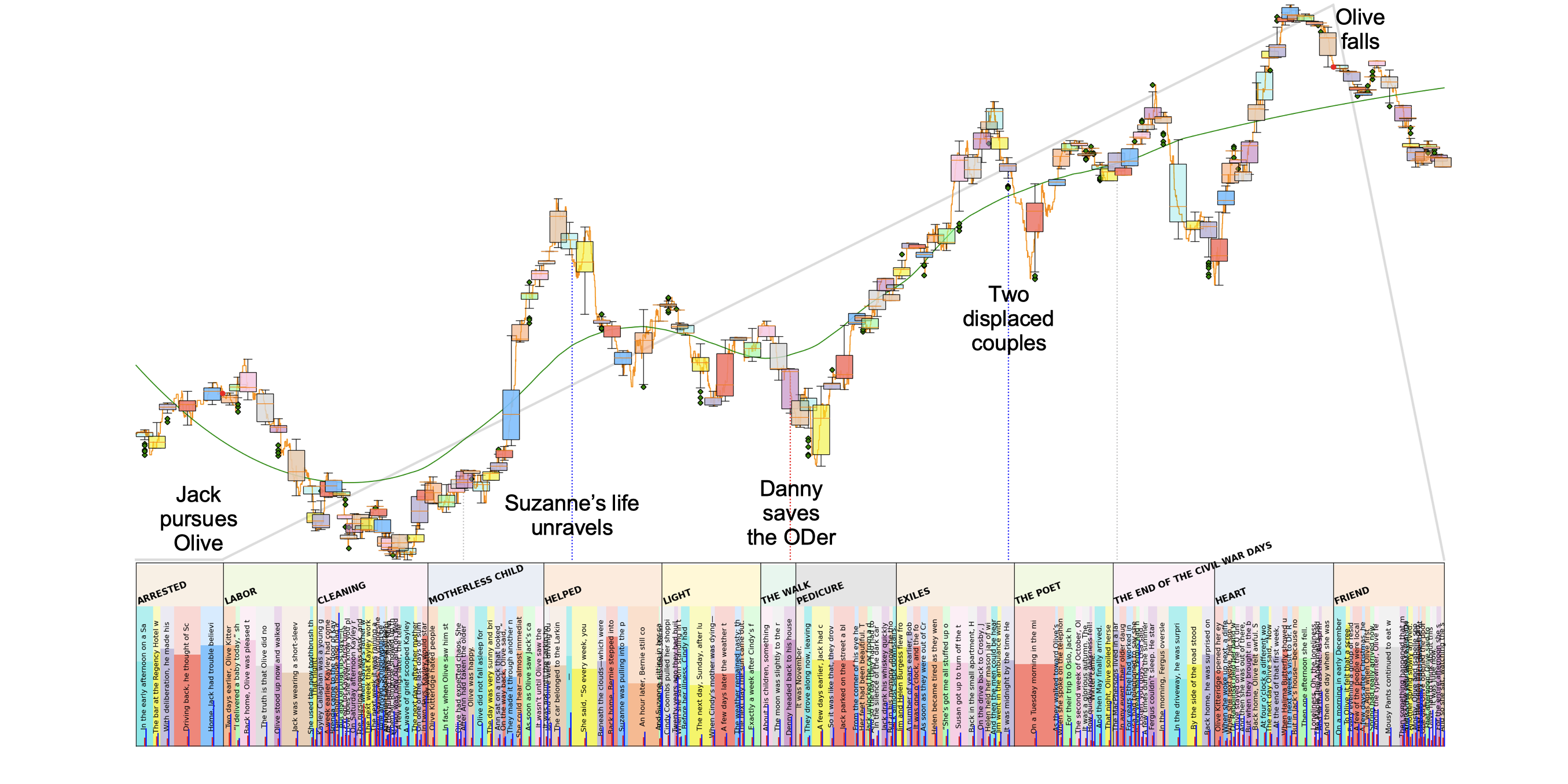Agenda
- Why We're Here / Roundtable Rules
- Introduction to Literary Forensics
- Group Discussion
- Further Study
Why We're Here
We writers want to improve our craft
by reading like a writer
We learn from each other
using Literary Forensics
Roundtable Rules
Always refer back to the book
Practice active listening & serendipity
Every feeling and observation is valid...
but not every conclusion
Always refer back to the book
Reading Teaches Writing
Today's author: Elizabeth Strout
- Born in Portland, Maine
- Admires the short stories of William Trevor
- 1st of her 7 novels published at age 42
- - Amy and Isabelle (1998) - made into a movie; nominated for Orange Prize & PEN/Faulkner Award
- - Abide with Me (2006)
- - Olive Kitteridge (2008) - Pulitzer Prize, HBO miniseries
- - The Burgess Boys (2013)
- - My Name is Lucy Barton (2016) [only novel in 1st person]
- - Anything is Possible (2017) - The Story Prize
Strout cares about words (say them three times and they're yours)
Rump / hind end
Poopy Panties
Dopey-dope
Flub-dub
Snot-wots
Hells bells
Frenchie / Franco / peasant
Mousey
Phooey to you!
Godfrey
Ay-yuh
Farts ("Oh, Jack, you know I hate that word.")
- A particular word used for comedic effect
And then she said, “Oh, shit. Honest to Christ,” she said. “For fuck’s sake.” The woman’s face went away. “Yoo-hoo,” said Olive. “Hey, yoo-hoo. Excuse me, I have no idea why I said ‘shit.’ I never say ‘shit.’ I hate the word ‘shit.’ ” No one seemed to hear this, though she could hear voices nearby. “All right,” said Olive, “I’m going back now.” She closed her eyes, but the beeping continued. “Oh, for heaven’s sake,” she said.
What do you feel?
What in the book elicited that feeling?
Every feeling and observation is valid...
but every conclusion should be questioned
We practice serendipity
- nothing is too crazy
Always refer back to the book
What do you notice?

Miniplot
- A mini-plot story is a tale that follows a protagonist through predominantly internal antagonism. They have inner demons that plague their lives, and the success of the narrative hinges on whether or not they can defeat them (or rather, whether or not the climax is reached). Believe it or not, the conflict doesn’t always have to be resolved; it just has to be closed — positive or negative.
- The structure tends to be more fractured than that of an arch-plot. Writers have more freedom and play a lot more with flashbacks and flash-forwards than they do in arch-plots. That’s because the mini-plot is more complex in its structure and telling — the flashes here and there help to add to this complexity.
- 1. Arrested (Jack)
- 2. Labor (Ashley’s baby delivered at Marlene’s house (daughter’s party))
- 3. Cleaning (Kayley, Brenda / Bertha Babcock, Mrs. Ringrose, Miss Minnie (nursing home))
- 4. Motherless Child (Christopher-Ann; Little Henry, Theodore) Maine/NYC
- 5. Helped (Suzanne Larkin; brother Doyle (murderer) atty: Bernie Green)
- 6. Light (Cindy Coombs (cancer))
- 7. The Walk (Danny Pelletier/Marie) – 50% saves drug addict’s life (Woodcock boy)
- 8. Pedicure (drive to Shirley Falls; Elaine (Jack’s ex-flame))
- 9. Exiles (Jim & Helen Burgess | Bob & Rev. Margaret) [The Burgess Boys]
- 10. The Poet (Andrea L’Rieux)
- 11. The End of the Civil War Days (Fergus MacPherson, Ethel -> Lisa (dominatrix), Laurie)
- 12. Heart (home nurses: Betty (trumper), Halima Butterfly (Somali))
- 13. Friend (Isabelle . . . other characters return...)
POV - Transitions within voice
- (within Heart chapter)

(...and then Strout got scared she went too far...)

- Strout making it clear this is Olive's voice, not hers
Olive, Again - Stats
- Marketing: Saga Fiction, Literary Saga, Humorous Literary Fiction
- Genre: Realistic Modern-Day Mini-Plot Long-Form
- Word count: 94,264
- Print Pages: 293
- Reading Level: 6th-7th grade
- Tense: Past
- POV: Multiple
- Publish date: October 15, 2019
- Publisher: Random House
- Sold By: Random House

